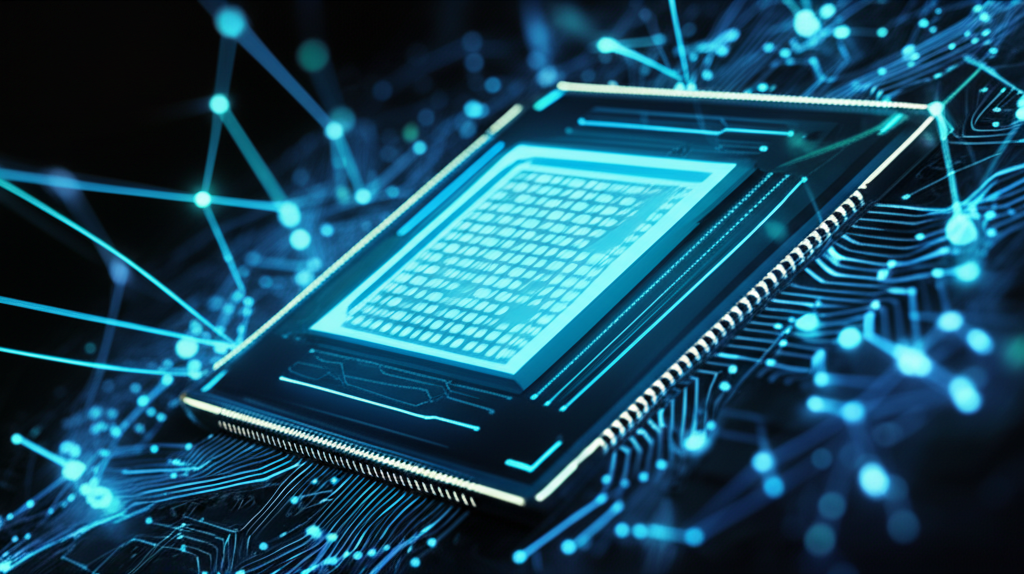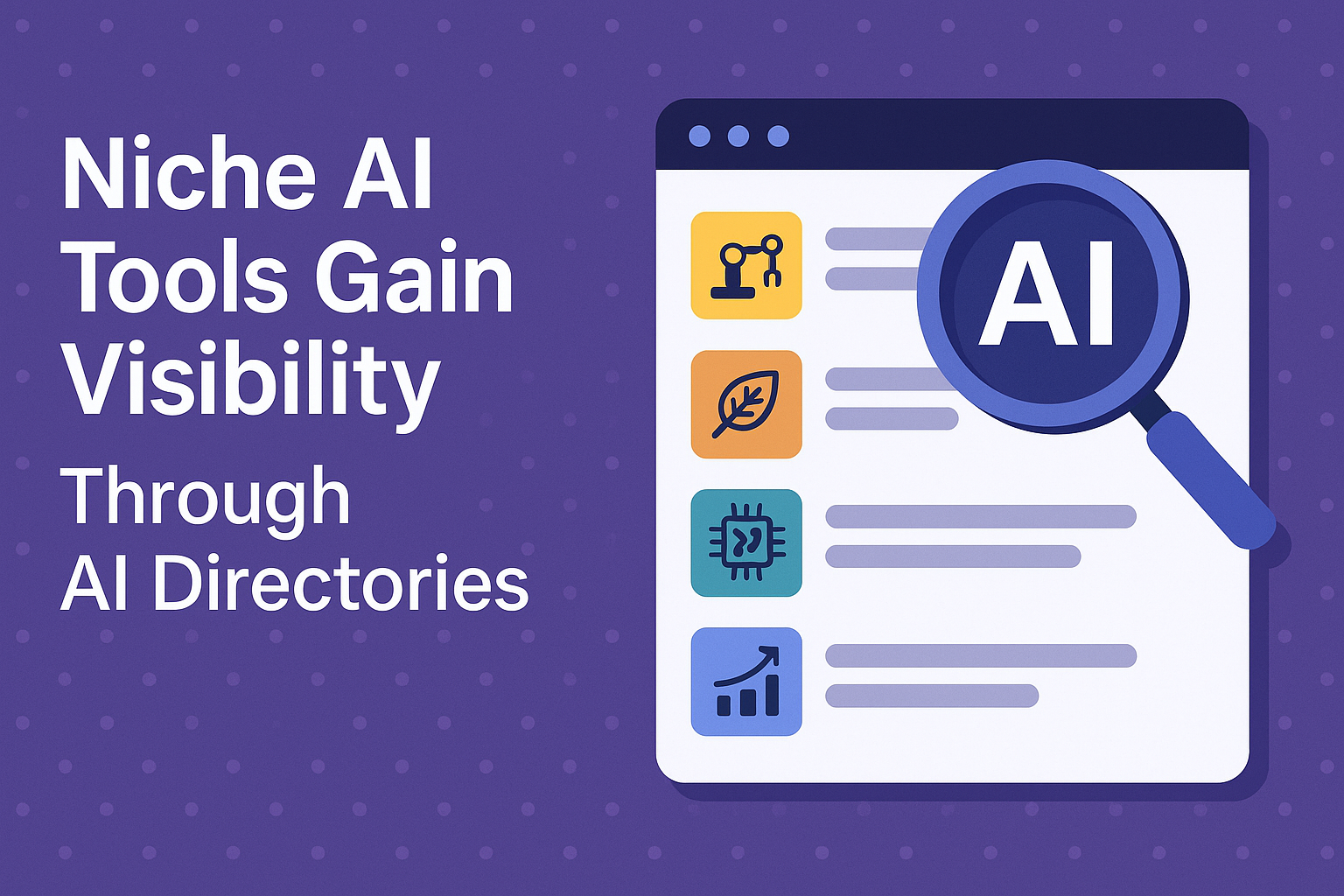Google's Gemini 3.0, NVIDIA's Blackwell & the AI Revolution: Enhanced Reasoning, Accelerated Computing, and Integrated AI Experiences

Introduction: A New Era of AI Reasoning with Google's Gemini 3.0
Google has just lifted the curtain on its latest marvel: Gemini 3.0, a generative AI model poised to redefine the boundaries of artificial intelligence. This isn't just another incremental update; it's a significant leap forward, primarily due to its vastly improved reasoning capabilities. Compared to its predecessors, Gemini 3.0 exhibits a remarkable ability to understand complex problems, draw inferences, and make decisions with a level of logical coherence previously unseen. This enhanced reasoning power unlocks a new realm of possibilities for AI applications across diverse sectors. Imagine the impact on fields like scientific research, where AI can now analyze complex datasets and generate novel hypotheses with greater accuracy. Consider the potential for more sophisticated AI-powered tools in finance, capable of making more informed investment decisions. Or envision the advancements in personalized medicine, where AI can tailor treatments based on a deeper understanding of individual patient data. The implications are truly transformative. This blog post will delve into the groundbreaking advancements presented by Gemini 3.0 and NVIDIA's Blackwell architecture, explore their potential impact across various industries, and discuss what these developments mean for the future of AI.
Gemini 3.0: Unpacking the Power of Enhanced Reasoning
## Gemini 3.0: Unpacking the Power of Enhanced Reasoning At the heart of the Gemini 3.0 announcement lies the concept of reasoning. In the realm of AI, reasoning refers to the ability of a system to understand, infer, and apply knowledge to solve problems, make decisions, and draw conclusions. It moves beyond simply recognizing patterns to understanding why those patterns exist and how they relate to one another. This is crucial because it allows AI to tackle complex, real-world scenarios that require more than just rote memorization or statistical association. So, what architectural innovations empower Gemini 3.0's enhanced reasoning? While Google hasn't revealed all the specifics, they've highlighted several key improvements. It's understood that Gemini 3.0 incorporates a more sophisticated attention mechanism, allowing it to focus on the most relevant information within a given context. Furthermore, it leverages an enhanced knowledge graph, providing a richer and more structured representation of information that the model can draw upon. Speculation also points to a more advanced training methodology, potentially involving reinforcement learning and curriculum learning, to progressively improve the model's reasoning abilities. Gemini 3.0's improved architecture translates into tangible improvements in specific tasks. For instance, it demonstrates a marked ability in complex problem-solving, such as deciphering intricate logical puzzles and formulating effective strategies in simulated environments. Its prowess in logical inference allows it to draw accurate conclusions from a set of premises, even when those premises are presented in a nuanced or ambiguous way. Furthermore, the model exhibits a greater capacity for common-sense reasoning, enabling it to understand and navigate everyday situations with greater accuracy. Imagine an AI assistant that can not only answer your questions but also anticipate your needs based on a deeper understanding of your context and intentions. Comparing Gemini 3.0 to its predecessors and competitors, the advancements in reasoning are readily apparent. While earlier models might have struggled with multi-step reasoning problems or exhibited biases in their conclusions, Gemini 3.0 demonstrates a significant reduction in these limitations. Compared to other leading AI models, Gemini 3.0 appears to be pushing the boundaries of what's possible in terms of logical inference, problem-solving, and common-sense understanding. Independent benchmarks and evaluations are still underway, but the initial results suggest that Gemini 3.0 represents a substantial leap forward in the quest to build truly intelligent and reliable AI systems.
NVIDIA Blackwell: The Hardware Foundation for AI Innovation
NVIDIA's Blackwell GPU architecture marks a monumental leap forward in AI hardware. Designed from the ground up to handle the immense computational demands of modern AI, Blackwell boasts a revolutionary design that significantly accelerates AI workloads. Key features include enhanced memory bandwidth, advanced Tensor Cores for optimized AI calculations, and improved interconnectivity for seamless multi-GPU scaling. At its core, Blackwell dramatically accelerates AI workloads by providing the raw processing power needed for complex matrix multiplications and other computationally intensive tasks involved in model training and inference. This means researchers and developers can train larger, more sophisticated AI models in a fraction of the time previously required. The increased memory bandwidth allows for faster data transfer, reducing bottlenecks and improving overall performance. For developers working with cutting-edge AI models, Blackwell offers a game-changing advantage. The ability to train and deploy massive models with unprecedented speed unlocks new possibilities in areas such as natural language processing, computer vision, and scientific computing. Developers can iterate faster, experiment with more complex architectures, and ultimately deliver more powerful and intelligent AI applications. The advanced Tensor Cores specifically accelerate the matrix multiplication operations that are at the heart of modern AI algorithms. NVIDIA's Blackwell architecture underscores its commitment to providing the fundamental hardware infrastructure necessary for AI innovation. By pushing the boundaries of GPU technology, NVIDIA is enabling the development and deployment of increasingly sophisticated AI systems that are poised to transform industries and reshape the future.
Synergy: Gemini 3.0 and NVIDIA Blackwell – A Powerful Partnership
### Synergy: Gemini 3.0 and NVIDIA Blackwell – A Powerful Partnership The arrival of Google's Gemini 3.0 and NVIDIA's Blackwell architecture isn't just a coincidence; it represents a pivotal moment where software innovation meets hardware prowess. These two advancements are poised to work in synergy, unlocking new possibilities in the realm of artificial intelligence. At its core, Gemini 3.0's enhanced reasoning capabilities demand significant computational power. This is where Blackwell GPUs step in. NVIDIA's Blackwell architecture is specifically designed to handle the massive workloads associated with advanced AI models. By providing the necessary processing speed and efficiency, Blackwell GPUs effectively unleash the full potential of Gemini 3.0. Imagine Gemini 3.0, unburdened by computational limitations, able to process complex information and derive insights at unprecedented speeds. This symbiotic relationship allows Gemini 3.0 to perform at its peak, solving intricate problems and generating more accurate and nuanced outputs. Furthermore, the combination of Gemini 3.0 and Blackwell opens the door to even more sophisticated AI applications. Consider the possibilities in fields like scientific research, where AI can accelerate simulations and data analysis, or in complex problem-solving scenarios such as optimizing logistics and resource allocation. With Gemini 3.0's reasoning abilities powered by Blackwell's robust infrastructure, we can anticipate a wave of innovation, leading to AI solutions that are not only faster but also more intelligent and capable than ever before.
AI Revolutionizing Cancer Research: Accelerating Drug Discovery
A new frontier in cancer research is being forged through the innovative use of AI-powered drug discovery platforms. These platforms are designed to analyze vast and complex datasets encompassing genomic information, chemical compounds, and clinical trial results. By leveraging sophisticated machine learning algorithms, they can identify potential drug candidates with remarkable speed and accuracy, predicting their effectiveness and potential side effects before they even reach the laboratory. Traditionally, drug discovery is a lengthy and expensive process, often taking years and costing billions of dollars. AI dramatically accelerates this timeline and significantly reduces costs. Instead of relying on traditional trial-and-error methods, AI algorithms can virtually screen millions of compounds, predict their interactions with specific cancer targets, and prioritize the most promising candidates for further investigation. This targeted approach minimizes the need for extensive and often unproductive laboratory experiments, saving both time and resources. The potential impact on cancer research is profound. AI-powered platforms can help researchers identify novel drug targets, personalize treatment strategies based on individual patient profiles, and develop more effective therapies with fewer side effects. Imagine a future where new cancer treatments are discovered and brought to market in a fraction of the time, offering hope to millions of patients worldwide. This is the promise that AI brings to the fight against cancer. Beyond cancer research, AI is poised to revolutionize the entire pharmaceutical industry. From drug design and development to clinical trials and manufacturing, AI is transforming every stage of the drug lifecycle. This paradigm shift not only accelerates innovation but also opens up new avenues for collaboration and partnership between AI companies, pharmaceutical firms, and research institutions, paving the way for a future of more efficient, effective, and personalized healthcare.
Microsoft Copilot and Windows 12: AI Everywhere
Microsoft is taking a bold step toward an AI-first future by deeply integrating advanced Copilot features directly into its upcoming Windows 12 operating system. This isn't just a superficial addition; it's a fundamental rethinking of how users interact with their computers. This tight integration means AI assistance will be far more accessible than ever before. No longer will users need to launch a separate application or navigate complex menus to access Copilot's capabilities. Instead, Copilot will be woven into the fabric of the operating system, ready to assist with tasks ranging from summarizing documents and drafting emails to managing files and controlling system settings. Imagine simply highlighting a paragraph and asking Copilot to rewrite it in a different tone, or querying Copilot to quickly find a specific file based on its content, all without leaving your current workflow. The potential impact on user workflows and productivity is enormous. By automating repetitive tasks and providing intelligent assistance on demand, Copilot can free up users to focus on more creative and strategic work. This integration also promises to lower the barrier to entry for using AI, making it accessible to users of all technical skill levels. Microsoft's vision is clear: AI is no longer a separate tool but a core component of the user experience. This integration of Copilot into Windows 12 signals a future where AI is pervasive, intuitive, and seamlessly integrated into how we interact with our digital world. Furthermore, this presents exciting opportunities for developers. By building upon Copilot's capabilities within the Windows ecosystem, developers can create innovative new applications and services that leverage the power of AI to enhance user experiences and solve real-world problems. Expect to see a surge in AI-powered tools specifically designed to integrate with Windows 12, further solidifying Microsoft's position at the forefront of AI innovation.
Conclusion: The Future is Now – Embracing the AI Revolution
In conclusion, the developments we've explored – Google's Gemini 3.0, NVIDIA's Blackwell GPUs, AI-powered drug discovery platforms, and Microsoft's integrated Copilot in Windows 12 – collectively paint a picture of an AI revolution already underway. Gemini 3.0's enhanced reasoning promises more accurate and reliable AI, Blackwell GPUs are powering more complex AI applications, AI is accelerating cancer research, and Copilot is making AI assistance readily accessible to everyday users. The potential impact of these advancements is far-reaching. We anticipate significant transformations across various sectors, from healthcare and technology to finance and beyond. Users can expect more personalized, efficient, and intelligent experiences in their daily lives. Developers will have access to powerful tools and infrastructure to build the next generation of AI-powered solutions. And investors will find ample opportunities in this rapidly evolving landscape. Looking ahead, the future of AI is one of continuous innovation and integration. We can expect AI models to become even more sophisticated, hardware to become more powerful, and AI applications to become more pervasive. The key to unlocking the full potential of AI lies in understanding its capabilities, exploring its applications, and embracing its transformative power. We encourage you to delve deeper into these technologies and consider how they might impact your own work, research, or investment strategies. The AI revolution is not a future possibility – it's happening now, and the opportunities are immense.
